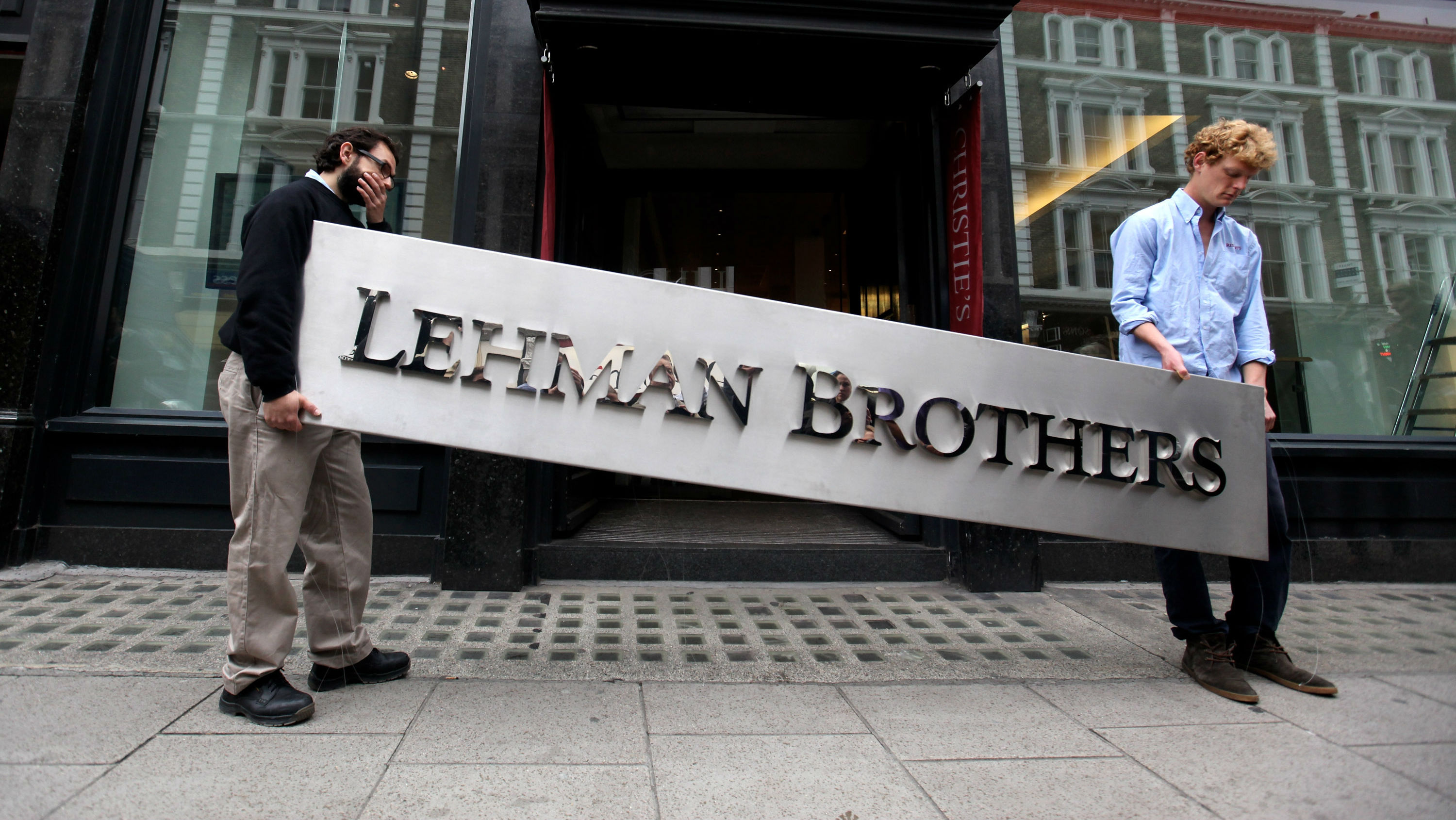Lehman Brothers creditors to avoid £1.2bn tax bill
High Court rules against HMRC's decision to tax defunct bank's £5bn surplus as yearly interest

A free daily email with the biggest news stories of the day – and the best features from TheWeek.com
You are now subscribed
Your newsletter sign-up was successful
Creditors of Lehman Brothers' UK-based European arm look set to avoid as much as £1.2bn in tax on the defunct bank's massive surplus.
HMRC had originally said the additional dividends could be paid free of duties, but changed its mind last year and decided any statutory interest should be treated as yearly interest and taxed accordingly, says the Financial Times.
But the High Court yesterday ruled payments to creditors could not be treated in the same way as regular interest – and criticised the tax watchdog for its inconsistent guidance.
The Week
Escape your echo chamber. Get the facts behind the news, plus analysis from multiple perspectives.

Sign up for The Week's Free Newsletters
From our morning news briefing to a weekly Good News Newsletter, get the best of The Week delivered directly to your inbox.
From our morning news briefing to a weekly Good News Newsletter, get the best of The Week delivered directly to your inbox.
Lehman Brothers' underlying loan book was "in fairly good health" at the time of its collapse, says the Daily Telegraph. Having paid back the original sums owed, the European arm, which is in administration, is carrying a surplus of more than £5bn.
According to the FT, that figure could be as high as £7.8bn, with interest making up around £5bn of that sum. Administrators at PwC wanted to start making distributions from this next year.
If HMRC had succeeded in classifying the payments as regular annual interest then income tax of between 20 and 45 per cent would have been due for UK residents. The court said it was unable to calculate the tax at stake, but HMRC put the "risk to the Exchequer" at up to £1.2bn.
The figure does not relate to any tax already paid, so HMRC will not have to dole out any money. It has also been granted the right to appeal and a spokesperson said it is "carefully considering" the decision and may launch a challenge.
A free daily email with the biggest news stories of the day – and the best features from TheWeek.com
According to yesterday's ruling, the concept of "yearly interest" is "elusive" and had never been defined.
But the judge, Mr Justice Hildyard, said the concept should not be applied to insolvency proceedings, agreeing with PwC this might set a precedent for creditors to demand dividends are paid within the first year after administration.
He also said the application of tax on only some creditors would be "wholly unprincipled and without merit".
Of HMRC's change of heart, the judge added: "It is of real importance, both in terms of good governance and a fair market, that HMRC should make every effort to ensure that this sort of thing does not happen again."
-
 How Democrats are turning DOJ lemons into partisan lemonade
How Democrats are turning DOJ lemons into partisan lemonadeTODAY’S BIG QUESTION As the Trump administration continues to try — and fail — at indicting its political enemies, Democratic lawmakers have begun seizing the moment for themselves
-
 ICE’s new targets post-Minnesota retreat
ICE’s new targets post-Minnesota retreatIn the Spotlight Several cities are reportedly on ICE’s list for immigration crackdowns
-
 ‘Those rights don’t exist to protect criminals’
‘Those rights don’t exist to protect criminals’Instant Opinion Opinion, comment and editorials of the day
-
 Labour shortages: the ‘most urgent problem’ facing the UK economy right now
Labour shortages: the ‘most urgent problem’ facing the UK economy right nowSpeed Read Britain is currently in the grip of an ‘employment crisis’
-
 Will the energy war hurt Europe more than Russia?
Will the energy war hurt Europe more than Russia?Speed Read European Commission proposes a total ban on Russian oil
-
 Will Elon Musk manage to take over Twitter?
Will Elon Musk manage to take over Twitter?Speed Read The world’s richest man has launched a hostile takeover bid worth $43bn
-
 Shoppers urged not to buy into dodgy Black Friday deals
Shoppers urged not to buy into dodgy Black Friday dealsSpeed Read Consumer watchdog says better prices can be had on most of the so-called bargain offers
-
 Ryanair: readying for departure from London
Ryanair: readying for departure from LondonSpeed Read Plans to delist Ryanair from the London Stock Exchange could spell ‘another blow’ to the ‘dwindling’ London market
-
 Out of fashion: Asos ‘curse’ has struck again
Out of fashion: Asos ‘curse’ has struck againSpeed Read Share price tumbles following the departure of CEO Nick Beighton
-
 Universal Music’s blockbuster listing: don’t stop me now…
Universal Music’s blockbuster listing: don’t stop me now…Speed Read Investors are betting heavily that the ‘boom in music streaming’, which has transformed Universal’s fortunes, ‘still has a long way to go’
-
 Evergrande: why China’s property crisis matters for the world
Evergrande: why China’s property crisis matters for the worldfeature Investors fear collapse of debt-laden firm could trigger global financial contagion